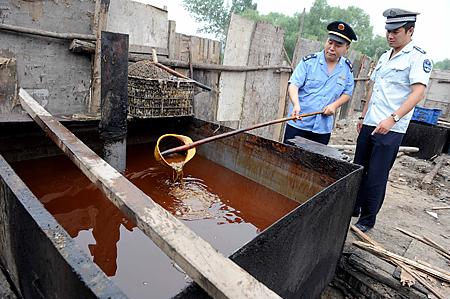Tainted food exported from China to North Korea is ruining the friendship between the two communist countries. An information source from Pyongyang revealed that North Koreans no longer trust food or food ingredients produced in China.
The source revealed to Daily NK on Oct. 8 that the majority of soybean oil in the North Korea market is from China. Consumers learned recently that the Chinese-produced soybean oil is actually gutter oil, that is, nasty cooking oil recycled from restaurant waste.





